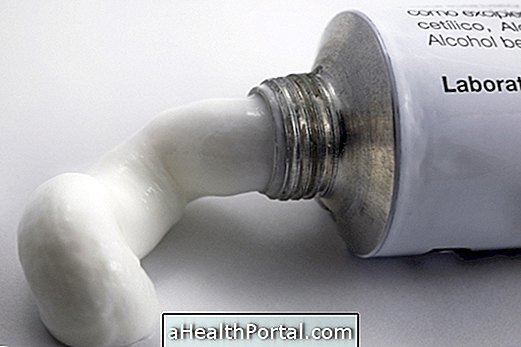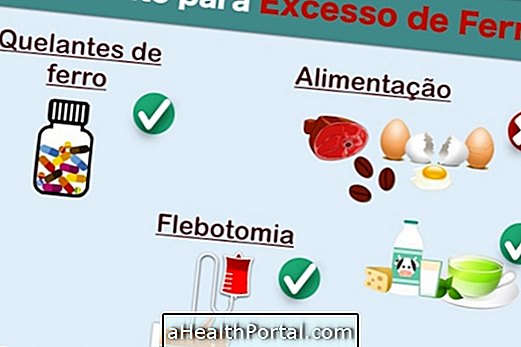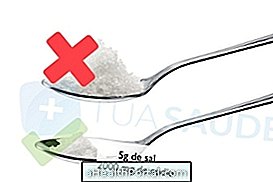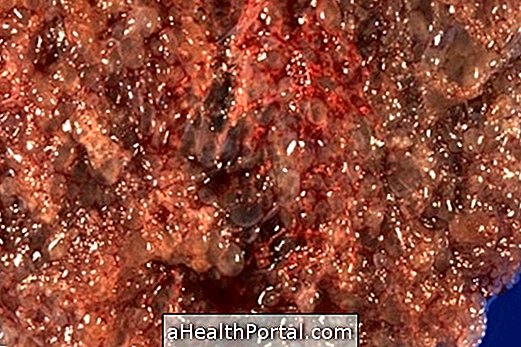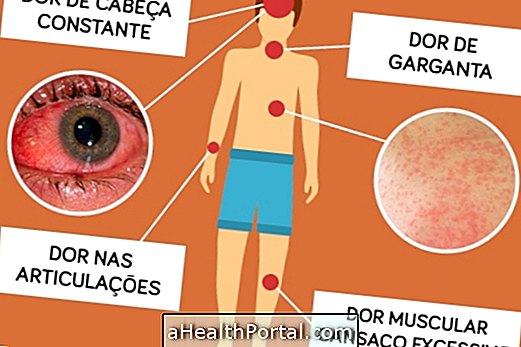Symptoms of hepatitis C, such as yellow skin, white stools and dark urine, appear in most cases about 45 days after contact with the hepatitis C virus.
However, generally only 30% of people infected with hepatitis C have symptoms and often the symptoms are confused with a flu, which means that many people may be infected with the hepatitis C virus and not know why they never showed up symptoms.
So if you think you may be having this problem select what you are feeling, evaluate the symptoms and know what your risk of actually being with hepatitis:
- 1. Pain in the upper right region of the belly Yes No
- 2. Yellowing of eyes or skin
- 3. Yellowish, grayish or whitish faeces Yes No
- 4. Dark urine Yes No
- 5. Constant low fever Yes No
- 6. Joint pain Yes No
- 7. Loss of appetite Yes No
- 8. Frequent dizziness or lightheadedness Yes No
- 9. Easy tiredness and no apparent reason Yes No
- 10. Swollen belly Yes No

Usually, patients begin with changes in stool and urine, then fever appears and when the fever starts to go down, the yellowish color appears on the skin and eyes. All these symptoms are gradually diminishing and most infected develop chronic hepatitis C because they do not reach the cure of the disease in a timely manner.
How to confirm the diagnosis
Since the symptoms of various types of hepatitis are very similar, it is important to consult a hepatologist to take the necessary tests and confirm that it is a type C hepatitis, initiating the most appropriate treatment.
The permanence of the hepatitis C virus in the body for long periods increases the risk of complications in the liver as risk of developing cirrhosis or liver cancer, and may require a liver transplant.
How Transmission Happens
The transmission of hepatitis C occurs through contact with blood contaminated with the hepatitis C virus, and some forms of hepatitis C transmission include:
- Intimate contact without a condom;
- Sharing of syringes contaminated with the virus;
- Material for contaminated piercing or tattooing;
- Blood transfusion prior to 1993;
- From mother to child through normal birth, although the risk is small.
Hepatitis C is not transmitted by sneezing, coughing or changing cutlery, for example.
How is the treatment done?
Treatment for hepatitis C is advised by an infectious or hepatologist and should be done with antiviral medicines such as Interferon, Daklinza and Sofosbuvir, for example for approximately 6 months.
However, if the virus remains in the body after this period, the individual may develop chronic hepatitis C that is closely linked to cirrhosis and liver cancer, requiring other treatments, such as liver transplantation. However, there is a risk that the patient will still be infected with the hepatitis C virus and that the new organ will also contaminate it. Therefore, before the transplant, it is necessary to try to eradicate the virus with medicines for long months until the transplant is authorized.
In addition, chronic hepatitis C reduces the patient's physical and mental performance, compromising their quality of life, and therefore it is very common to find cases of depression associated with chronic hepatitis C.
Here's what your feed should look like to recover faster in the following video:














